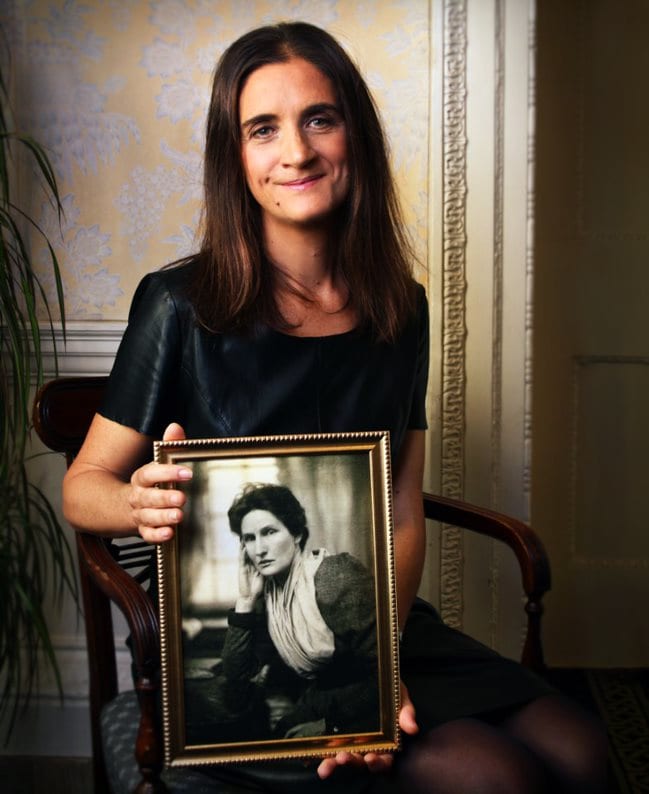To mark the 2018 centenary of the first British women winning the right to vote, we are honouring Bristol women who have changed our institution, and the world. From our first woman lecturer to the first British woman to have won a Nobel Prize, these activists, educators and agitators now take their rightful place on the walls of the Wills Memorial building – along with ten of the women in today’s University community to who continue to be inspired by their legacy.
 Mary Paley Marshall, the first woman lecturer at University College Bristol, with Professor Sarah Smith, Head of the Department of Economics
Mary Paley Marshall, the first woman lecturer at University College Bristol, with Professor Sarah Smith, Head of the Department of Economics
“Mary Paley was a pioneer in the field of economics. She was the first woman to pass finals in political economy at Cambridge
(although barred from graduating due to her gender) and in 1875 she was invited to return to her former college, Newnham, as the first woman economics lecturer at Cambridge.
“Mary arrived at Bristol in 1876 with her husband, the economist Alfred Marshall, after being forced to leave Cambridge because of regulations preventing college fellows from marrying. Marshall became the first Principal of University College Bristol and Professor of Political Economy, while Mary became one of the first female lecturers. Although Bristol was the first higher education to admit women students on an equal basis to men, Mary’s salary was paid out of that of her husband.
“While at Bristol, Mary co-wrote The Economics of Industry with Marshall after being asked to turn her Cambridge lectures into a book. Her influence was evident from the book’s discussion about gender pay inequality, putting forward the argument that men and women may be equally productive but receive unequal pay because of “custom and general opinion”.
“Mary remained an active champion of women’s education and of the increase of their employment, particularly in the domains of teaching and business management. She herself continued to lecture and was an inspiration to many generations of her students. Given that Mary wasn’t permitted to graduate from Cambridge, it was very fitting that Bristol presented her with an Honorary degree in 1926 for her lifelong work as a teacher of economics”
________________________________________
The University of Bristol was the first higher education institution in England to welcome women on an equal basis to men, but our commitment to gender equality reaches far beyond this milestone. The wooden panels of the Great Hall in its Wills Memorial Building have been an all-male domain thanks to hosting portraits of its Vice-Chancellors. But now, thanks to a project specially-commissioned to mark 100 years since the first women in Britain won the right to vote, a series of ten portraits redresses the balance and celebrates notable Bristol women who have changed the institution – and, indeed, the world.
